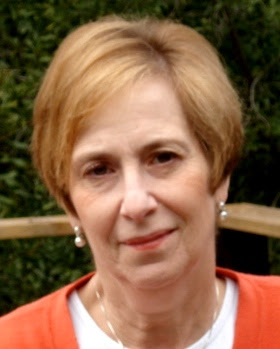
B’midbar, or "in the wilderness," is the name of both this week's Torah portion, the opening chapters of the Book of Numbers, and the fourth book of the Hebrew Bible. The Torah portion centers around two census counts ordered by God. The first count is the number of fighting men of the twelve tribes of Israel whose task is to guard the populace from outside enemies. The second count is of the number of males above one month of age of the tribe of Levi whose task is to assist the Kohanim [priests] in ministering to the tabernacle and guarding it from all outsiders.
As I read the portion in preparation for writing this Voices piece, I thought to myself “Wow, now I know what those bar/bat mitzvah kids feel like when they get their assigned portion!” What was I going to write about census counts and priests?
But then I read it again and turned the portion over and over in my mind. And I realized that there was more than just counting in this portion. There are names in this portion – lots and lots of names. With a name like fredi (and yes, I spell it with a small letter f) names are important to me! And I began to think about how we can be influenced by names, titles, and appearances and never get to the heart of the person in front of us.
My son, Geoffrey, met the love of his life several years ago. When I met Gabriel, I was not immediately thrilled. Gabriel is black and a man whose faith, Evangelical Christian, is foreign to me, to say the least. Gabriel greeted me warmly, and my inner voice grumbled about “respecting my space.” He acted like he knew my son better than I did – in short, he did lots of very normal things which set my teeth on edge. Why? Because he is different than me – the color of his skin, his religion, even his mannerisms were different than the people I spend most of my time with. And I, Ms. Liberal, was uncomfortable.
Flash forward a couple of months. Gabriel and Geoffrey were driving from Cincinnati to Chicago, after attending Gabriel’s grandmother’s funeral. Her given name was Queen Esther. Funny how things work, isn’t it? Geoffrey was driving and Gabriel was in the passenger seat. Suddenly a sheriff’s car was behind them, lights and siren flashing. The sheriff pulled them over and made them get out of the car. He patted them down, asking if he needed to get drug sniffing dogs to check out the car. He told them to open the trunk of the car and went through their things. They checked for warrants on both young men. Geoff and Gabriel answered the questions they were asked, remained quiet with their heads down, and drove off as soon as they were released, which was at least 30 minutes after they were stopped. They were terrified. And me? I was angry. Angry at the sheriff, angry at the country that allows this kind of behavior, and yes, angry at Gabriel for putting my son in danger.
Flash forward again. Gabriel called me and asked for my blessing; he planned to ask my son to marry him. If you know me, it will not come as a surprise that I asked him all kinds of questions and raised some objections. To his everlasting credit, he answered me with patience, with kindness, and most importantly, with love. The next day my son called me; he asked for my blessing, as he planned to ask Gabriel to marry him, in exactly the same way that Gabriel had described his proposal. I asked Geoffrey the very same questions and raised the very same objections. He answered in the same way that Gabriel had – with patience, with kindness, and with love. And finally, finally, I got it. I understood that no matter what our differences in culture, ethnicity, religion, or sexual identity – we are all the same. No matter what we look like, or what our titles are, or our name, we are all created b'tzelem Elohim, in the image of God.
I was fortunate to have spent a recent weekend with my WRJ sisters at the inaugural WRJ Social Justice Conference. I have been a member of WRJ for more years than I can count. I belong for many reasons, including the friends that I have made, the spiritual nourishment I receive whenever I am with the Women of Reform Judaism, and for the personal growth I have experienced. But today I tell you that the most important, most critical, and most urgent reason that I belong to WRJ is that I believe that, no matter our name, our appearance, our gender identity, we are all God’s people, and we all deserve access to basic civil rights. WRJ is deeply concerned with social justice and has made it a priority. I urge you to look at WRJ’s website and get involved. There are too many Geoffreys and Gabriels. We must act now. We must make sure that two young men, returning from a grandmother’s funeral, will never again be stopped, searched, and terrified. For my son, and yours, I ask you to join me in this urgent and important work.
fredi Bleeker Franks is a past president of her congregation’s sisterhood and WRJ district and a current member of the WRJ North American board. She lives in Houston, Texas with her husband Paul and is the proud mother of 4 boys and Bubbie to 2 adorable girls.
Related Posts

Parashat Yom Rishon shel Rosh HaShanah

Cultivating a Culture of Accountability and Belonging


